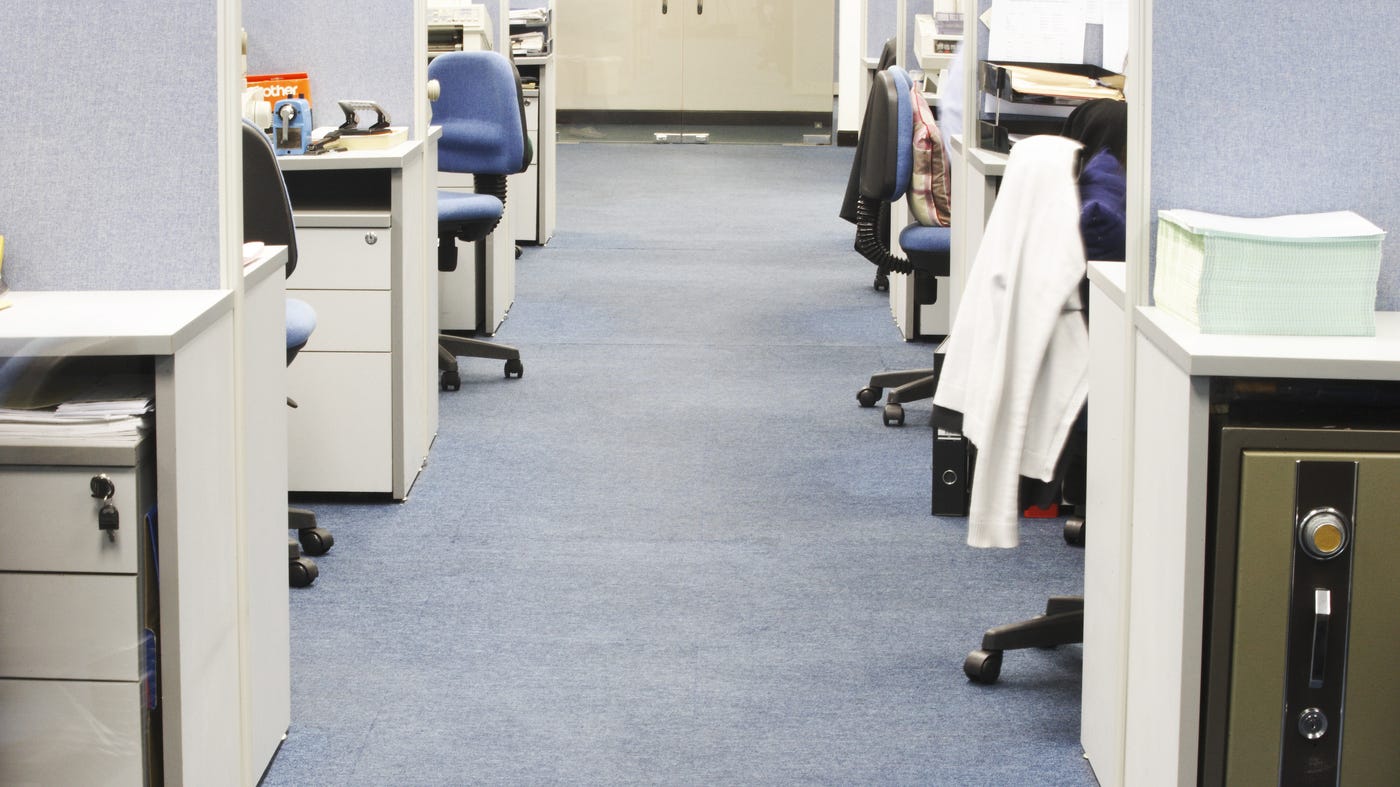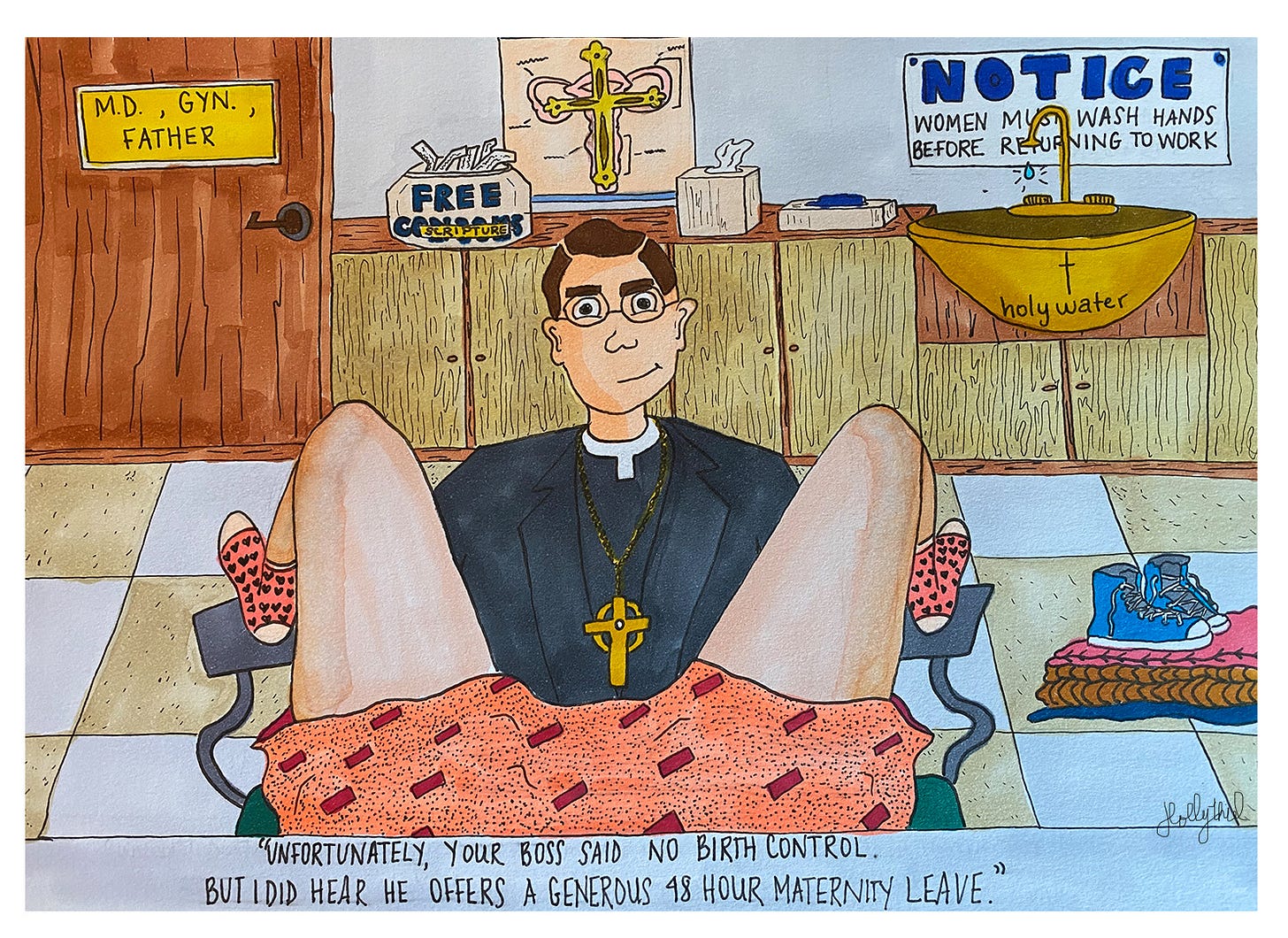Edition #32: Grappling with Menial Meaninglessness
Plus, a successful basic-income experiment, a photographer whose prints you'll want on your walls, and a profile of Viola Davis

A Note From the Editor
A year or so ago, I wrote a short story in which the protagonist was a boring man with a plain, monotonous life— peanut butter and jelly sandwiches for lunch, a wardrobe consisting of nothing but brown coveralls and sneakers, an undecorated bedroom. Despite the dreary backdrop, my protagonist carried a profound sense of meaning from his secretarial office job, where he was responsible for typing passage updates for fourth-grade science textbooks.
The character reasoned that, though everyone in his office hated their jobs and was miserable, he was in on a secret they all chose to ignore-- that his work meant something; that however indirectly, his daily tasks influenced the lives of children all over the country. He relished in this fact, used it to construct an optimistic outlook on what the reader perceives as an empty, sad life. The story takes a turn when the protagonist finds out his passages haven't actually been printed for the past several years due to a clerical error, therefore dismantling his sense of self-worth. The entirety of his fabricated purpose collapses, and the story ends. The title was “Useless.”
Writing fiction can be therapeutic, revealing truths we choose to ignore because they’re scary or uncomfortable. Though I don’t remember actively thinking so at the time, it’s clear to me now what I was feeling back then, and the feeling has come up at various moments in my white-collar career. At my first internship, an all-female, perfectly pink PR office on Park Avenue, I spent the summer of dropping off gifts to editors and sitting brainstorms in which we discussed how to “make a BIG splash” for the launch of a new Urban Decay eye shadow palette. Before I started, I considered working there my dream job, but towards the end, I remember very clearly thinking, “what I’m doing doesn’t matter at all.” That feeling never went away entirely, but as time passed, I got better at ignoring it.
I’m fascinated at the ways in which we back into the indirect value of our work, the “good” we’re doing for the world. It often feels like the same brand of disingenuous marketing speak spewed by brands that promise you their expensive workout gear is “made from 100% recycled plastic and with every purchase you’re saving one koala bear from a brushfire,” when in reality, they just want you to buy the damn leggings. If you’re pedaling catfood ads at a tech company, you’re actually contributing to the accessibility of information for millions of people, and it’s organic cat food! If you’re project managing for a corporate events company, you’re actually creating opportunities for people to come together where they otherwise would not. In the case of my protagonist, if you’re typing up pre-written passages in a textbook, you’re actually playing a key role in educating the future of America. These justifications are largely false, but they feel necessary. Without them, we’d have to face reality: that for the most part, our jobs aren’t important, and the work we’re doing will likely have no lasting legacy once we’re gone.
There’s a catch 22, of course: that we live in a capitalist society requiring these sorts of jobs, and if we sat around pondering their meaninglessness all day we’d all be miserable. Maybe the first step isn’t the default, “I must find a new job to fill my holes and give me meaning!”— maybe it’s divorcing ourselves from the ideology that job = self = self-worth. Maybe it’s breaking the habit of asking “what do you do for work?” when you first meet someone new. Maybe it’s cultivating an entire identity outside of your job. And, hey, maybe it is finding a new job, but the point is it doesn’t always have to be.
We’re living through what may very well be the strangest, most still period of our lives. We’re seeing the ugliness of the world, of our country, and it’s impossible to ignore that our value system has been skewed in a way that is equal parts self-serving and futile. The end result of these truths will look different for everyone, but it’s high time we started to consider them.
Cheers, my dears, and might I suggest this wonderful essay for more on the subject. I’d love to hear your take on work, fulfillment, and values. Do you look to your job for meaning, or do you seek it elsewhere? Has COVID made you reconsider what you’re contributing to the larger society?
Three Pieces of Content Worth Consuming:
Please Stop Saying “No Worries If Not!” I got click baited into this article, and while it may not be crazy deep, there is a lesson to be learned from its telling. The same day I read the piece, I stopped myself mid-sentence as I realized I was typing the "no worries if not!" designation over email. In another email, I wrote "sorry If I might've misunderstood,” when in fact, the other person had clearly misunderstood. If language, spoken or typed, yields power, then this habitual apologetic tone sucks it dry, and I’m going to try to keep that in mind.
A City-Wide Basic Income Experiment Gone Right. If there’s one thing you read from today’s edition, make it this. I'd never heard of Michael Tubbs, the 29-year-old mayor of Stockton, CA, before reading this piece. Tubbs is piloting a basic income program in Stockton, a diverse city where half of the residents fall below the poverty line. 125 participants were chosen for the program, receiving a debit card loaded with $500 every month with no restrictions on how the money is spent. Not all participants are unemployed; many of them work multiple jobs but are still struggling to make ends meet. "BUT THEY'LL USE THE MONEY FOR DRUGS,” critics may want you to assume, except they aren't. Information on how the money is spent is publicly available, and it’s primarily used for things like food, health care costs, gas, etc. The program is proving to be a solid case study on how basic income could work really, really well. On how the funds were spent, one program participant said:
“Teeth. I got teeth. I can smile. I used to cover my face with my hand.”
A Stunning Profile on Viola Davis. This quick, bursting profile portrays Davis as the picture of strength, grace, and brute talent, and it was eye-opening in a lot of ways. It's baffling to consider that Davis doesn’t have directors knocking down her door, begging her to star in their films despite the fact that she's the first Black actress to receive a trip crown (an Oscar, Emmy, and a Tony Award). She discusses the regret of having taken her role in The Help, if only because the story doesn’t celebrate or care about the Black characters in any significant way. Maybe that’s what led her to start her own production company, to create the sort of roles that she never had the chance to audition for. Well worth the read.
Perhaps You Should…
Add Some New Art To Your Walls

I’ve got my eye on these framed prints from Mark Clennon, a self-taught photographer with a story that most artists only ever dream of. After trading his full-time office job for a life behind camera four years ago, Clennon’s risen to a level of predominance that is both impressive and well deserved. This powerful photo is one of my all-time favorites, and if it’s ever for sale, I’m buying several.
**Bonus Content** (A Game About 2020)

They say laughter is the best medicine, and as such, I need this card game, stat. Even better, part of the proceeds from every sale is donated to the COVID Response Fund and the NAACP.
A Comic by My Friend, Holly

Every week for the month of July, my talented friend is creating a comic just for the newsletter. I especially loved this week’s edition, and you can read up on some context here. Thoughts on Holly’s comic? Suggestions for next week? Drop them in the comments below.
A Quote From A Book You Should Read:
“We are so customed to disguise ourselves to others that, in the end, we become disguised to ourselves.”
-The Goldfinch by Donna Tartt
This newsletter is best served with a side of conversation, so drop your opinions, reflections, and thoughts in the comments below and let’s get to talking.
Or, share the most thought-provoking piece from today’s edition with someone you love, then call them up to discuss, debate, and percolate. As a wise woman once said, “Great minds discuss ideas.”




Meghan! We so appreciate you highlighting and amplifying Mark's work and business in this edition of your newsletter. Subscribed so I can continue to receive more!
I keep coming back to this newsletter bc it makes me feel a little better about the fact that I am aimlessly searching LinkedIn looking for the perfect job to shake that sense of meaningless work. Can't help but think that the feeling won't just carry on through the next job as well - and it's really nice to reframe the idea of finding purpose in other areas in our lives, especially now. My mom liked this one too. Thanks!